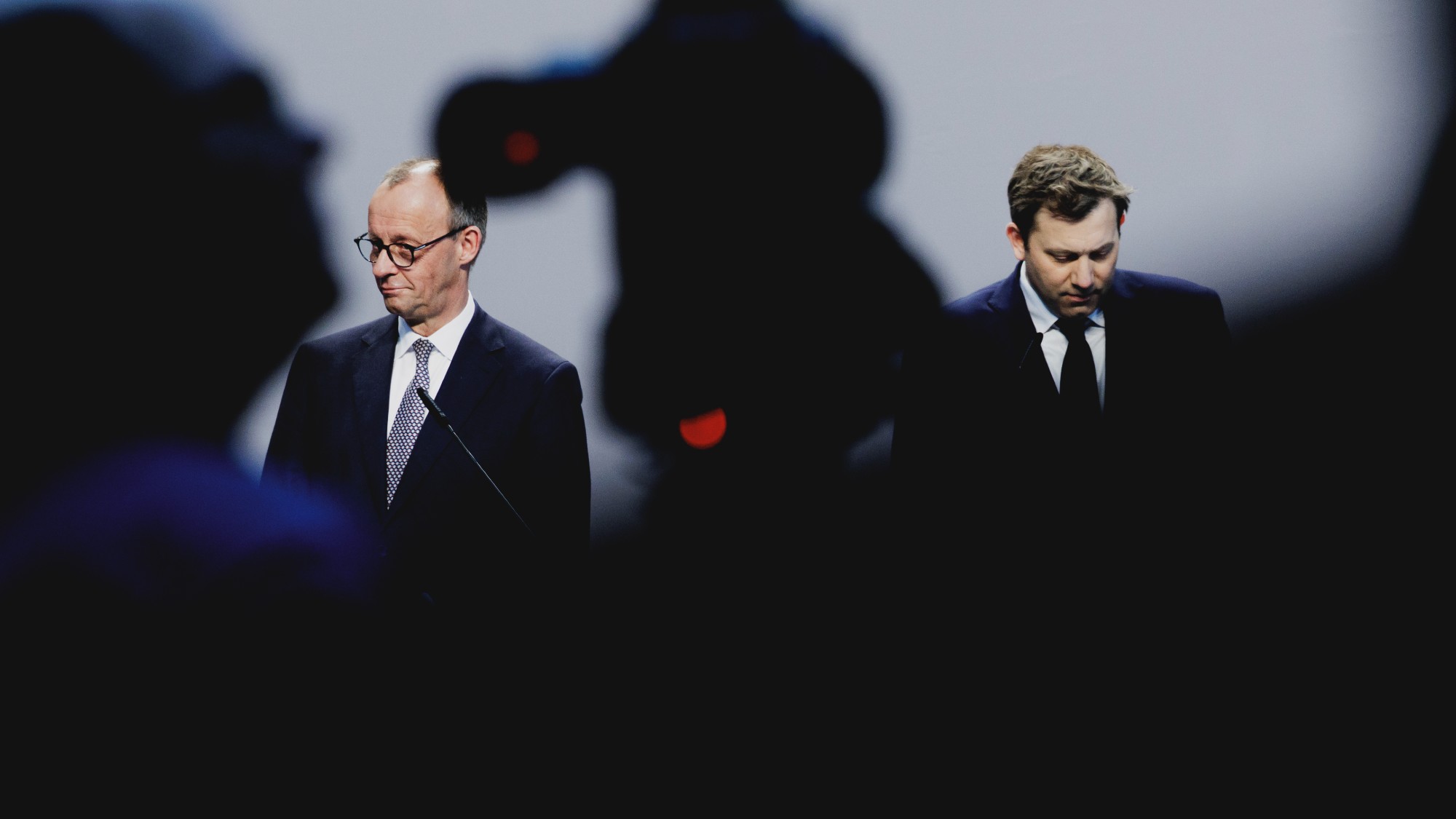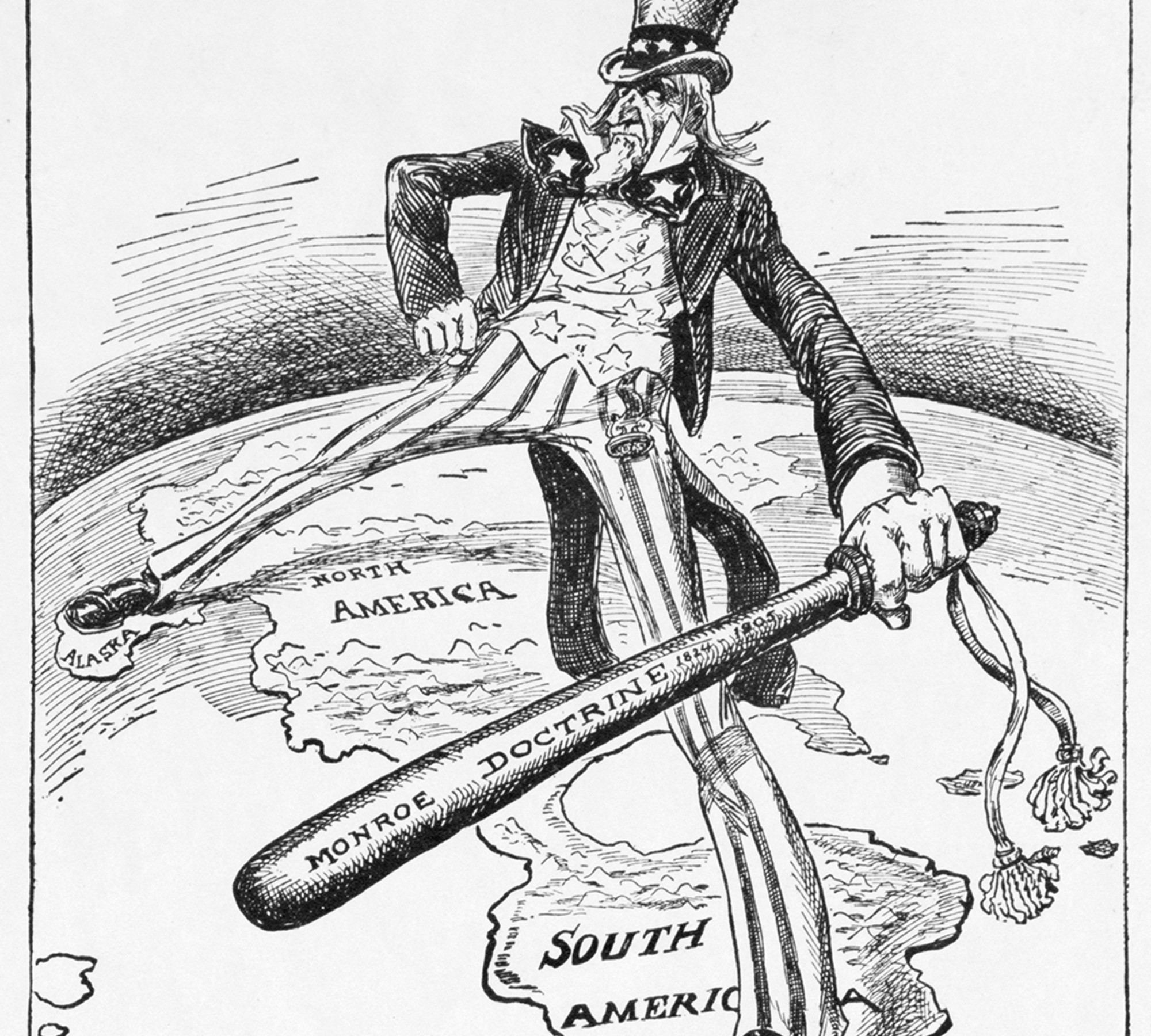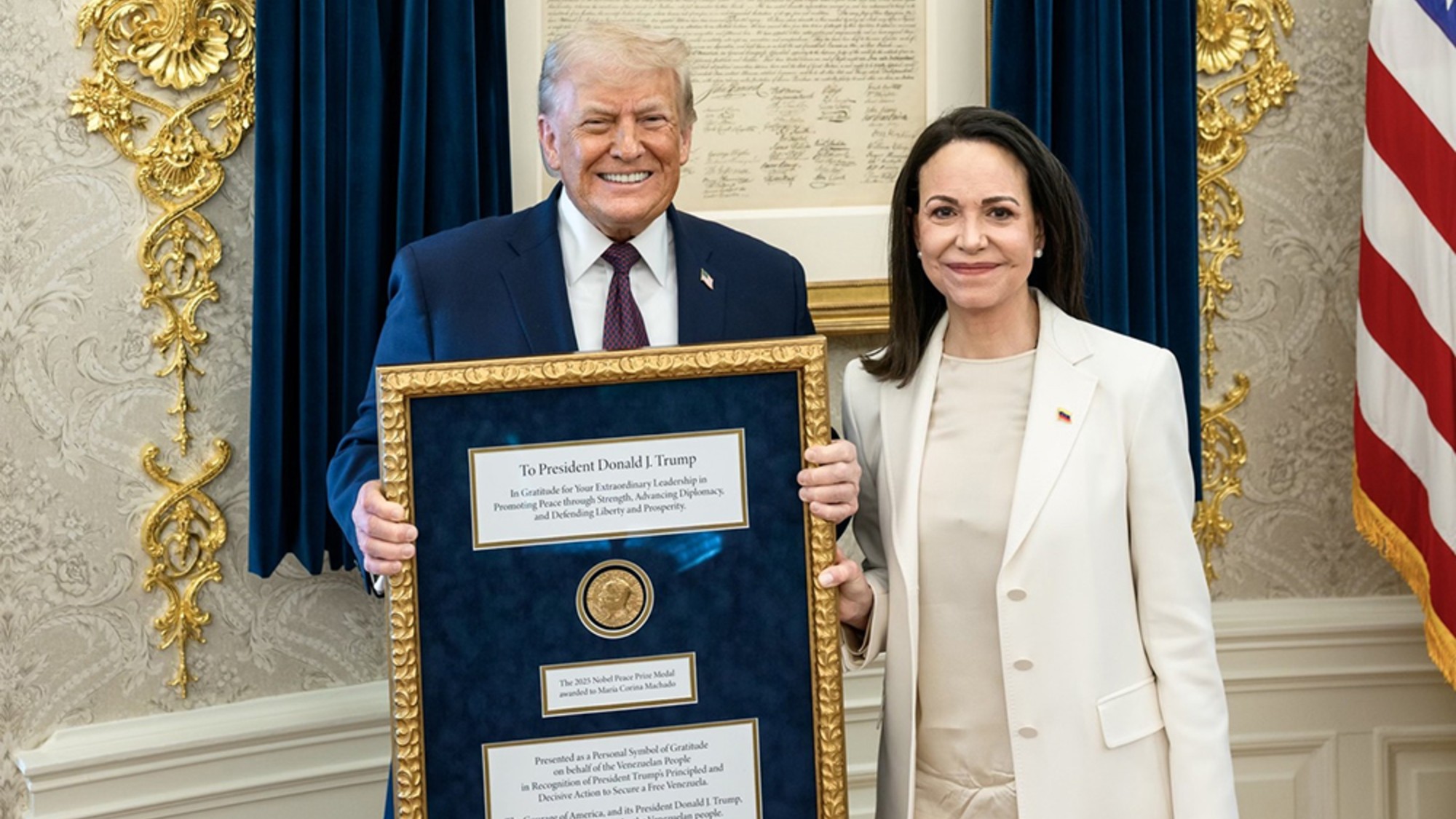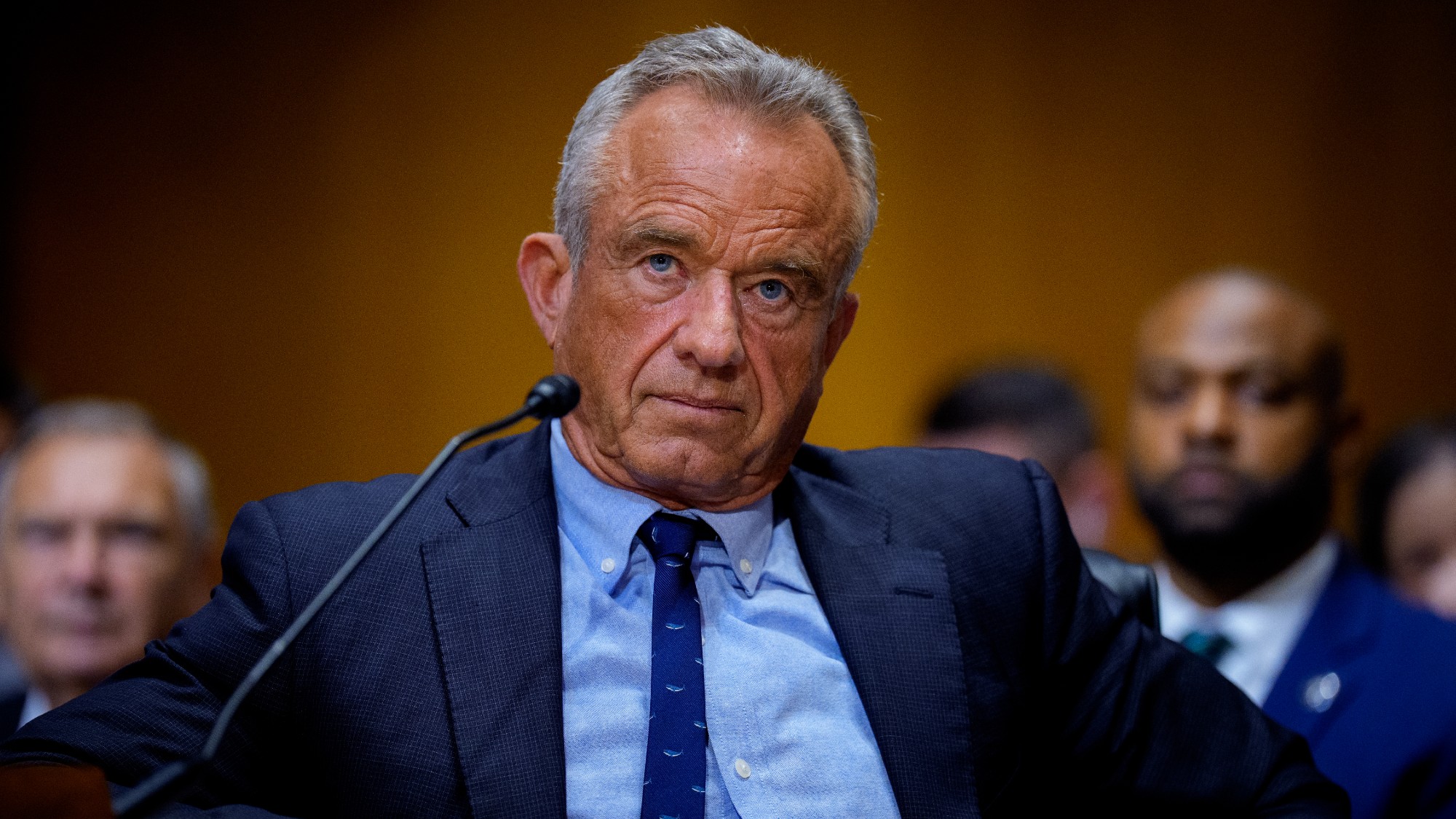Merz's coalition deal: a 'betrayal' of Germany?
With liberalism, freedom and democracy under threat globally, it's a time for 'giants' – but this is a 'coalition of the timid'

So much for Germany's "radical" new direction, said Ralf Neukirch in Der Spiegel (Hamburg). When the incoming chancellor, Friedrich Merz, won the election in February, he promised to be bold and brave: to tighten our borders, unshackle our low-growth economy, bolster our defences, and wean us off our dependence on the United States. Last week, on the same day that the far-right AfD topped a national poll for the first time, the CDU leader unveiled his coalition deal with the SPD – and it was full of the same tired old policies: no military conscription; no social and tax reform; no major migration measures.
The centre-left SPD got something for pensioners, while Merz's centre-right CDU/CSU alliance walked away with gifts to farmers and entrepreneurs. "A perfectly normal coalition agreement, in other words. Only these aren't normal times." With war raging in Europe, the far-right on the rise and the US intent on destroying the global economic order, we need our leaders to be courageous. Instead, we have a "coalition of the timid".
OK, so Merz's new agreement is "hardly revolutionary", said Jan Frédéric Willems in Tagesschau (Hamburg). But his most radical measure came before the coalition agreement, when he upended decades of fiscal convention and released Germany's debt brake – unleashing a more than €500 billion bazooka of defence and infrastructure spending. Combine this multibillion-euro injection with a calm policy plan, and "a lot can be achieved".
The Week
Escape your echo chamber. Get the facts behind the news, plus analysis from multiple perspectives.

Sign up for The Week's Free Newsletters
From our morning news briefing to a weekly Good News Newsletter, get the best of The Week delivered directly to your inbox.
From our morning news briefing to a weekly Good News Newsletter, get the best of The Week delivered directly to your inbox.
Perhaps that kind of quiet, pragmatic approach is what voters want: in a world where Vladimir Putin and Donald Trump are sowing chaos, a little bit of sobriety and stability starts to look appealing. That's why last week's announcement was so low-key compared with that of Olaf Scholz's previous "traffic light" coalition, said Thomas Sigmund in Handelsblatt (Düsseldorf). They unveiled their own deal in 2021 with "beaming selfies" and an over-the-top slogan of "Dare More Progress". "In the end, little more remained of the 'progressive coalition' than a pile of rubble." Merz's coalition has sensibly chosen the more subdued "Responsibility for Germany".
Besides, Merz has managed to secure some important wins, said Volksstimme (Magdeburg), including a reduction in corporate tax, and returning the minimum residency requirement for obtaining German citizenship from three years to five. But it's nowhere near enough, said Henry Donovan in The Spectator (London). During the campaign, Merz promised centre-right voters that he would reverse Angela Merkel's "leftward drift"; yet this agreement "might as well be written in red ink". It's full of SPD policies, although the centre-left party has just suffered one of its worst election defeats, winning only 16% of the vote.
Immigration is fuelling AfD's ascendance, and yet the coalition's central promise in this area – to turn asylum seekers back at the border – is empty, as it depends on the unlikely cooperation of other countries. Coming on top of Merz's debt-fuelled spending splurge, the deal has "formalised the most spectacular betrayal of centre-right voters in modern German history". It's a gift the AfD "could scarcely have hoped for".
It had barely begun, but the honeymoon is definitely over for Merz, said James Angelos on Politico (Brussels). His approval ratings have plunged ten points since the election. The world needs Germany's new leader to succeed, said Tagesspiegel (Berlin). The stakes are incredibly high – both domestically, where Merz's coalition is the only thing standing between the AfD and power, and globally, given our country's economic and military weight in Europe. With liberalism, freedom and democracy under threat, it's a time for "giants" – yet sadly we have no Helmut Kohl, no Gerhard Schröder, no Merkel. All of them have experience of governing during international crises. Our incoming chancellor and his coalition partners do not. "Their learning curve must be steeper than anyone's before."
A free daily email with the biggest news stories of the day – and the best features from TheWeek.com
-
 Metal-based compounds may be the future of antibiotics
Metal-based compounds may be the future of antibioticsUnder the radar Robots can help develop them
-
 Europe’s apples are peppered with toxic pesticides
Europe’s apples are peppered with toxic pesticidesUnder the Radar Campaign groups say existing EU regulations don’t account for risk of ‘cocktail effect’
-
 Political cartoons for February 1
Political cartoons for February 1Cartoons Sunday's political cartoons include Tom Homan's offer, the Fox News filter, and more
-
 Reforming the House of Lords
Reforming the House of LordsThe Explainer Keir Starmer’s government regards reform of the House of Lords as ‘long overdue and essential’
-
 The ‘mad king’: has Trump finally lost it?
The ‘mad king’: has Trump finally lost it?Talking Point Rambling speeches, wind turbine obsession, and an ‘unhinged’ letter to Norway’s prime minister have caused concern whether the rest of his term is ‘sustainable’
-
 Does standing up to Trump help world leaders at home?
Does standing up to Trump help world leaders at home?Today’s Big Question Mark Carney’s approval ratings have ‘soared to new highs’ following his Davos speech but other world leaders may not benefit in the same way
-
 ICE: Now a lawless agency?
ICE: Now a lawless agency?Feature Polls show Americans do not approve of ICE tactics
-
 Dominating the Americas
Dominating the AmericasFeature President Trump has revived the 19th-century Monroe Doctrine to justify his aggressive foreign policy.
-
 Trump: A Nobel shakedown
Trump: A Nobel shakedownFeature The president accepts gold medal he did not earn
-
 Le Pen back in the dock: the trial that’s shaking France
Le Pen back in the dock: the trial that’s shaking FranceIn the Spotlight Appealing her four-year conviction for embezzlement, the Rassemblement National leader faces an uncertain political future, whatever the result
-
 Childhood vaccines: RFK Jr. escalates his war
Childhood vaccines: RFK Jr. escalates his warFeature The health secretary cut the number of recommended childhood vaccines from 17 to 11